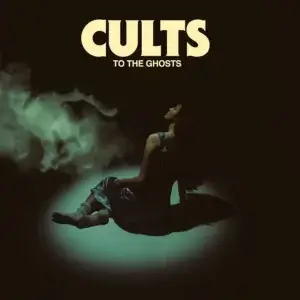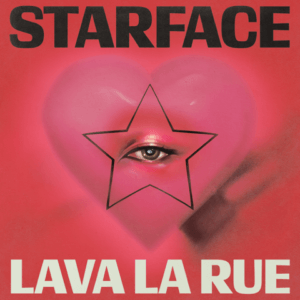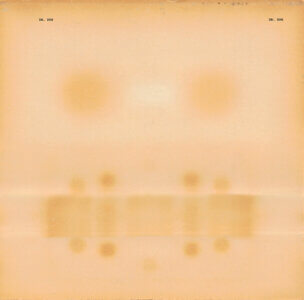Dan Bejar Wrestles Out of Song Form for Destroyer’s Latest

Doomscrolling your symptoms online can be a fruitless, frightening affair, but when Destroyer’s Dan Bejar set out to uncover the root of an inner ear condition a while back, he found inspiration in a curious word that ended up becoming the title to his latest, and thirteenth long player: Labyrinthitis.
The word’s a good fit. You could find parallels between that vertigo-inducing inflammation and Labyrinthitis moments that rush the senses with rippled, New Order-leaning bass hooks (“It’s In Your Heart Now”), sinisterly ground-shifting synth arpeggios (“Tintoretto, It’s For You”), or giddily disorienting disco hustles (“It Takes a Thief”).
Across Destroyer’s earliest records, the Vancouver-based Bejar’s lyrics ran ambitiously novelistic—densely packed mergers of literary, historical, hyper-local, and pop culture references. While continuing with the economy of words Bejar ushered in on 2011 breakthrough Kaputt, Labyrinthitis is nevertheless a record that crests between seemingly self-referential potshots (“fancy language dies, and everyone’s happy to see it go”), comically onomatopoeic power struggles (“‘Ruff ruff’ goes the beagle to the terrier”), and, as Bejar tells Northern Transmissions, the thoughts of “a petty villain into insulting people and punching beneath their weight.” On “June,” the lyricist goes extra hard with an extended, vintage Destroyer-styled narrative. Throughout an immersive ‘80s electro-funk outro, Bejar’s fever dream rap waxes on “the root empiricism of every troubled loser,” longtime producer/bassist John Collins mutating the singer’s voice into a series of pitch-shifted, digitally processed stutters.
“I was constantly asking John to turn me into a robot on this record—I don’t know why, maybe I felt like it should be more impersonal,” Bejar explains. “Sonically, the song devolves in this really cool way; I wanted my voice to devolve as well. The reference I keep making is HAL 9000 from 2001: A Space Odyssey, the way they slowly kill the computer toward the end of the movie and its voice gets lower and lower until it gurgles. I was going for that effect.”
Speaking with Northern Transmissions, Bejar further dished on the details of Labyrinthitis, singing from the point of view of a “despicable prima donna,” and more.
This interview has been edited and condensed.
Northern Transmissions: Just getting into the album title, Labyrinthitis, have you ever experienced any hearing issues in that sense, or is this more of an artistic vertigo?
Dan Bejar: I discovered the word as I was trying to self-diagnose some things I was going through that I thought were tinnitus-related—trying to figure out why my ears were ringing, or why, when I would stand up, I would want to fall down.
It seemed like a fake word. What made me interested wasn’t what it described so much, [but] the look of the word, and how it instantly comes off. It seems fantastic; like science fiction, almost. I couldn’t quite figure out what it really meant. At first I was like, “Is that when you’re addicted to mazes?” Or is it someone who chronically takes wrong turns? But that feeling of disorientation and vertigo was one that I associated with the album that I was making with John Collins.
NT: Expanding on the idea that Labyrinthitis could suggest an addiction to mazes—for better or for worse, people have intensely analyzed your lyrics over the years. They’re often seeking deep meaning within each and every word of Destroyer’s…
DB: I think I know what you mean, in that sometimes people think I’m building mazes with nothing in the centre of them, which is an idea I like but I don’t think that’s what I do. What I do is a lot more unconscious than that. I have a very emotional reaction to each line, and how each line connects to the line before and the line that comes after it—otherwise I can’t sing it. I’m really bad at faking my way through that stuff.
Sometimes I’ll feel more distant from a song as the years goes by, those earlier Destroyer just don’t feel comfortable in my mouth. Not because I don’t know what they’re about, but because I don’t sing like that anymore, or I don’t talk like that anymore.
NT: With that in mind, how do you see Labyrinthitis sitting against the rest of Destroyer, or even compared to your last record, Have We Met?
DB: It seems part and parcel with that one, sonically, though I feel, in retrospect, Have We Met is kind of a feel-good album. Even though Labyrinthitis is relentlessly upbeat— it’s a really fast record, and there’s always a lot going on—I feel like the heart of it is darker and more brittle. There’s a character that I’m singing from…I don’t know who the person is, but it’s kind of a petty villain into insulting people and punching beneath their weight. I don’t think that’s something that happened in Have We Met, which seems like a more personal work, and has a style of writing in some of the songs that hearkens back to old school Destroyer: really dense, florid. There’s not much of that on Labyrinthitis—it’s more weasel-y [laughs].
NT: What’s the most cutting moment on the album from that character?
DB: I mean, it’s not for me to say. There’s a lot of that singer pointing out to people that they’re going to suffer, and then rubbing their face in it—taking pleasure in that—[but] the music in the background of me saying “you’re going to suffer” is kind of celebratory. It’s a weird dissonance.
There’s a song called “June” where I say something like “a snow angel’s a fucking idiot somebody made/a fucking idiot someone made in the snow,” and it’s almost like a line you would say to a child to make them cry, or to somehow disembowel magic. Not only is it unnecessarily mean-spirited to want to make a child cry, but it’s also very petty. It’s not a lofty ambition.
There are other examples. “Tintoretto, It’s For You” is basically: “You’re the Grim Reaper’s sidekick delivering a telegram to someone over and over again, saying ‘Your time’s up. It’s time to die.’”
NT: On the other side of that—and maybe this is too surface of a read on this— on “It Takes a Thief” there’s at least a suggestion of supporting others: “The Band don’t need a singer, the band needs a helping hand.”
DB: Except in that song I was trying to posit the singer as a despicable prima donna. There’s another song called “Eat the Wine, Drink the Bread” where the line is: “I piss on the floor, the band sets up on the floor/I piss on the floorboards, the whole world’s a stage.” It’s a kind of debauched, but also down- and-out asshole singer. So, yeah, there are some uplifting lines in “It Takes a Thief,” but that song is so cartoonish, and filled with almost Carl Stalling/Spike Jones-sounding effects. I find it really unnerving! I find it to be a confusing, fake form of “uplifting.”
NT: Can we get into your relationship with the music as an instrumentalist? In different phases of Destroyer, like on Kaputt for instance, you were fully focused on being the vocalist; on Have We Met you’d played synths; on Labyrinthitis, you’re back to playing guitar for the first time in a few albums…
DB: I would say my role as an instrumentalist has been really consistent from Kaputt onwards. I sing; I hold down the chords on a synthesizer, which John will manipulate, usually; maybe you’ll hear me playing some basic piano chords; and then to every song I bring one or two [guitar] melodies.
Usually I write the song, sing it, and have one or two melodic motifs that are obviously Destroyer-y, but for the most part I try to get everyone to a) do whatever they feel like, and b) get John to chop and screw it as much as he can, which he really did on this record. Probably more than he’s done on any other Destroyer album. Maybe any album he’s worked on. I wonder if this record is the purest expression of his Id?
NT: Getting into some of that chopping and screwing—I’m a little unsure about calling the mid-section of “June” a rap, but the stuttered tonality of some of those lines have an almost MARRS “Pump Up the Volume” kind of manipulation to them.
DB: Oh yeah, that’s definitely where John and I live. I didn’t think I was ever going to work with him again, because he started a family and had gone off to live on an island. During the height of COVID, it seemed hard to picture [working together], but when we started talking, we talked about doing a house record. Like a full-on four-on the-floor techno record—just beats, bass, and sound effects. For some reason, it always morphs into something else with us. It’s funny you mention “Pump Up the Volume,” because that late ‘80s kind of techno industrial-pop—like MARRS or Adrian Sherwood— we seem to land there very easily.
NT: Further on in “June,” is that also your voice that’s been pitch-shifted super low?
DB: It’s just me pitch-shifted down and then pitch-shifted down again. I was constantly asking John to turn me into a robot on this record—I don’t know why, maybe I felt like it should be more impersonal. He finally went to town on that song. Sonically, the song devolves in this really cool way; I wanted my voice to devolve as well. The reference I keep making is HAL 9000 from 2001: A Space Odyssey, the way they slowly kill the computer toward the end of the movie, and its voice gets lower and lower until it gurgles. I was going for that effect.
NT: Did it feel taboo at all to transform and disfigure your voice in that fashion?
DB: It felt way less taboo than me doing a spoken word or a rap. I was way more scared of that than of fucking around with my voice.
The whole second half of the song was an afterthought. John whipped up this really long instrumental outro that actually had a lot of momentum to it, [but] it’s two and a half minutes long. Something had to go on there. My idea was “When in doubt, take the Lizard King approach,” and try and do some Jim Morrison-style American Prayer singing, but it became more rap-like.
NT: Scenes of Italy seem to crop up a few times on the record, whether that’s reflected by referencing Tintoretto the painter on “Tintoretto, It’s for You,” bringing up the Trevi Fountain in “Suffer,” or surveying Rome in a day on in a day on “It Takes a Thief.” Was there any reason why Italy had been on your mind, in particular?
DB: I’ll throw places out there just to ground things, especially so people know what it is that I like. But it’s weird, at the height of lockdown I remember people really going into nature a lot; being outside was the saving grace. I was angry; I didn’t want that! The more it happened, the more I missed being in a small, crowded, loud bar in Madrid or Lisbon.
I was wondering if I would ever experience that again in my life. The possibility that I wouldn’t really started to weigh heavy on my heart. I guess I was thinking about places like Italy. Places that I’ve romanticized in the past, or that I’ve spent a little bit of time in, but seemed brutalized by the current state of the world. Places like Spain and Italy got hit really hard [by COVID]. These old world urban experiences, which I thought would be 100 per cent a thing of the past…I’m probably wrong about that…but it led me [towards] fetishizing those things.
NT: With respect to “Eat the Wine, Drink the Bread,” are you familiar with the artist Bjenny Montero?
D: No.
NT: There’s this cartoon they posted recently that references “Eat the Wine, Drink the Bread,” I’m going to drop the link in here.
DB: That’s really funny.
https://twitter.com/bjennymontero/status/1496097241269952515
NT: He’s obviously a fan!
DB: I guess that I am tagged there, but for a second I thought that this was the natural conclusion to anyone who drinks enough wine: they end up drinking the bread and eating the wine. That kind of confusion and excess is the endgame of being a booze-hound, you know? This dog seems to have the right idea.
NT: Riffing off the first verse in the song, would you think this to be a beagle or a terrier?
DB: Yeah…I can’t tell, especially because it’s standing on two legs like a humanoid.
NT: With the twist of phrase to “Eat the Wine, Drink the Bread”— that kind of “pobody’s nerfect” inversion—had you played around with that kind of literary tool before?
DB: I think “Eat the Wine, Drink the Bread” is the debut. That song stands out for me. The way we do it is a pretty Destroyer-y— as a chugging, up-tempo, slightly new wave disco song—but vocally, and lyrically, it was a bit of a breakthrough for me. I think one of my main influences over the last couple of years has become Marlene Dietrich. I think “Eat the Wine, Drink the Bread” has a tired decadence to it that hints at that influence.
NT: How did you fall into Marlene Dietrich?
DB: I got really into her old movies with Josef Von Sternberg. I was watching her, and was just shocked at how incredibly modern her acting and singing styles were for someone doing something in the early 1930s. It seemed incredibly contemporary; sophisticated. I just liked her approach to the half-singing/half-speaking way of singing, which has always been very inviting to me. I liked the way she slurred her words, and also how you probably couldn’t find someone more diametrically opposed to the general image that I, myself, conjure. In the early 2000s I was deep inside of a Scott Walker phase when I did this album Your Blues. That seemed like such a stretch from my vibe [at the time], but I think Marlene Dietrich’s vibe is even more of a universe away from me. But I like that!
NT: On “The Last Song”, you close with the line “an explosion is worth a hundred million words, but that is maybe too many words to say.” Not to sound trite, but if you were to pinpoint a number on how many words you’ve invested into Destroyer over the years, where do you think you’d land?
DB: A lot words in the ‘90s and ‘00s, but the word count really started to shrink around Kaputt. I don’t think it’s a hundred million, but there’s a lot of stuff that I write that doesn’t make it into the songs, for whatever reason. Like, the language doesn’t seem musical to me. Maybe that’s why I ended up really enjoying “June,” because the whole second half—the spoken word bit—is just filled with the kind of stuff that I have reams of. That stuff comes easy to me, just pages and pages of that crap. It was freeing— liberating— just to be able to speak it over a swath of sound. It might even point to stuff I do in the future. It almost frees you from the song form, which is something I’ve tried to wrestle my way out of for a few years now—and not unsuccessfully.
Pre-order/Save LABYRINTHITIS by Destroyer HERE
Latest Reviews
Tracks
Advertisement
Looking for something new to listen to?
Sign up to our all-new newsletter for top-notch reviews, news, videos and playlists.









